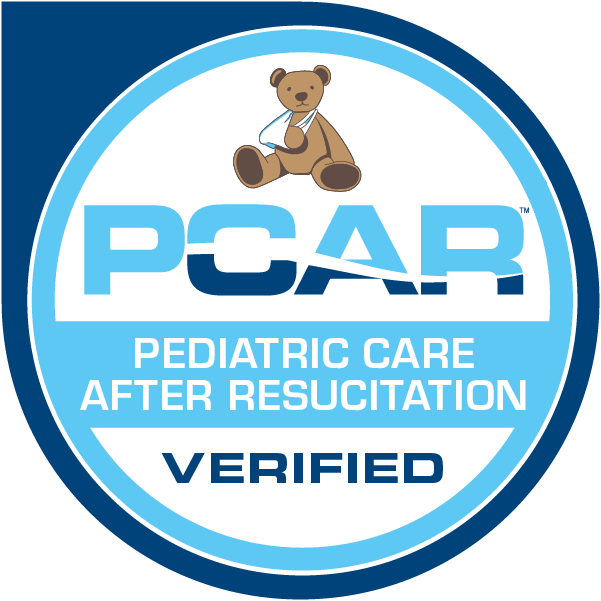Pediatric Care After Resuscitation (U.S.)
Issued by
Visionem
PCAR (Pediatric Care After Resuscitation) is the pediatric-specific version of the adult focused TCAR course, ideal for nurses who occasionally or primarily care for injured children. PCAR does not focus on specific psychomotor skills, which vary greatly by practice location and practice level.
- Type Learning
- Level Foundational
- Time Hours
- Cost Paid
Earning Criteria
-
AN INTRODUCTION TO FOUNDATIONAL TOPICS RELEVANT TO THE NURSING CARE OF HOSPITALIZED INJURED CHILDREN: The trauma care spectrum * The biomechanics of trauma * The body’s response to injury * Thoracic injury * Abdominal injury * Musculoskeletal injury * Craniocerebral injury * Spine and spinal cord injury
-
LEARNERS PARTICIPATE IN INTERACTIVE EXPANDING CASE SCENARIOS (INJURY TO DISCHARGE) ADDRESSING NEEDS OF THE HOSPITALIZED CHILDREN WITH TRAUMA TO MAJOR BODY SYSTEMS. EACH MODULE INTRODUCES SPECIFIC CARE CONCEPTS: pathophysiology, patient assessment, and complications. Surgical, medical, and nursing management options and outcome criteria are introduced while discussing patients with: Thoracic injury * Abdominal injury * Musculoskeletal injury * Craniocerebral injury * Spine and spinal cord injury
-
EACH INTERACTIVE EXPANDING CASE SCENARIO PROMOTES CRITICAL THINKING, KNOWLEDGE SYNTHESIS, AND CLINICAL REASONING SKILLS BY INVITING LEARNERS TO: Anticipate injuries and complications based on biomechanics data * Analyze individual patient characteristics to predict injury potential * Incorporate laboratory, imaging, and physical assessment data to determine resuscitation status * Use tissue oxygenation concepts to target appropriate care interventions and evaluate their efficacy
-
Identify individuals at risk for clinical deterioration * Prevent, recognize, and manage complications of traumatic injury * Understand current trends and issues in trauma patient care * Predict an injured patient’s trajectory across the trauma care continuum * Set realistic goals and evaluate patient outcomes
